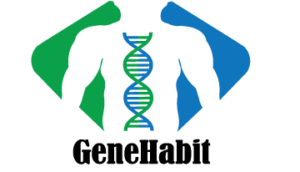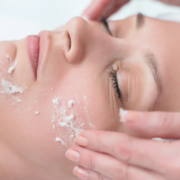Tag Archive for: Skin Care
Omega-3 Supplements: The Essential Nutrient for Your Skin and Overall Health
Omega-3 fatty acids are important for your health because they play a role in many bodily functions, including cell growth and maintenance, blood clotting, and inflammation control. Some research also suggests that omega-3 fatty acids may improve mental health and cognitive function. Omega-3 is also one of the most essential nutrients for skin issues and skin care management because of its role in maintaining cell growth. If you’re not getting enough omega-3s from your diet, you may want to consider taking an omega-3 supplement. Talk to your doctor before doing so to make sure it’s the right choice for you.
Role Of Omega-3 Fatty Acid In Skin

Omega 3 fatty acids are a type of polyunsaturated fatty acid that is essential for human health. They are found in fish oils, walnuts, flaxseeds, and other plant-based oils. Omega 3 fatty acids play an essential role in skin health, as they help to maintain the skin’s barrier function and keep it healthy. They also help to reduce inflammation and promote wound healing. If you’re looking to improve your skin health, make sure you’re getting enough omega-3 fatty acids in your diet. You can do this by eating plenty of fish, nuts, and seeds, or by taking a supplement containing omega-3 fatty acids.
How Does Deficiency Of Omega-3 Impact Skin?
Omega-3 fatty acids are essential nutrients that are important for overall health. A deficiency of omega-3 can have a negative impact on the skin, leading to dryness, flaking, and an inability to heal properly. Omega-3 fatty acids play a role in maintaining the health of the skin by helping to keep it hydrated and preventing inflammation. When the body is deficient in omega-3 fatty acids, this can lead to an increase in inflammation and a decrease in the production of collagen, which is responsible for keeping the skin elastic and healthy. Additionally, a deficiency of omega-3 can lead to an increase in sebum production, which can cause acne or other skin problems. If you are experiencing problems with your skin, it is important to make sure that you are getting enough omega-3 fatty acids in your diet.
How Can One Get Omega-3 From Food Or Supplements?
There are many different ways to get omega-3 fatty acids into your diet. You can get them from food, or you can take supplements or through a DNA-based diet. Some foods that are high in omega-3 fatty acids include salmon, tuna, mackerel, and sardines. You can also find omega-3 fatty acids in some nuts and seeds, like walnuts and flaxseeds. If you’re not a fan of fish or nuts, you can also take omega-3 supplements. Just be sure to talk to your doctor before starting any supplement regimen, especially if you’re taking medication or have any health conditions.
Most Recommended Omega-3 Supplement Products By Health Experts Are:
- Best overall: mbg omega-3 potency+
- Best for newbies: Pure Encapsulations O.N.E
- Best budget: Nature-Made Burp-Less Mini Omega-3
- Best fish burp-free: NOW Foods Double Strength DHA-500
- Best vegan: Truvani Omega-3 from Algae
- Best cod liver oil: Big Bold Health Dutch Harbor Omega
What Is The Role Of Genes In Omega-3 Absorption?
Your genes play a role in how well your body can absorb omega-3s. For example, people with certain variants of the FADS1 gene absorb omega-3s less efficiently than those without these variants. This may explain why some people seem to benefit more from omega-3 supplements than others. A recent study on US Hispanics revealed that those suffering from severe skin inflammation like psoriasis or acne had significantly lower amounts, which led them to benefit when they consumed omega 3s in their daily diet; thus improving symptoms related to these conditions.
With DNA Test Mitigate Skin Disorder By Knowing Omega-3 Deficiency Risk
The best way to manage skin conditions is by identifying the root cause. DNA tests can help identify an omega-3 deficiency, which may increase your risk for these disorders and should be addressed with a thorough diet or supplement plan that includes this important nutrient in order to minimize potential problems especially if you have a hereditary history of them!
By Taking Up DNA Test You Can Mitigate These Skin Disorders Before Its too late:
With Omega-3 deficiency, not only could you be at risk for poor skin health and hair loss but also other diseases such as low immunity or inflammation. And all this because your body needs optimal guidelines to stay healthy! So why don’t we get tested with DNA Technology? It will pay off big time knowing everything from head to toe has been optimized according to genetic makeup.
If you like to know more about DNA tests and how vitamin-minerals are processed by our bodies for skin health visit here.
DNA- Based Skin Problems And Skin Care Solutions With SkinLife
Genetic testing for Skin problems reveals the risks for your skin type and issues related to it. With personalized genetic reports, an individual can potentially identify the risk for Acne, Sun damage, Pigmentation, Wrinkles, and Skin sensitivities associated with their skin. Genetic testing allows you to identify the right solution for your skin and maintain a healthy skincare routine.
Have a look at our products with consent links:
When you take a SkinLife DNA test it gives detailed and personalized genetic insights into your skin type and skin health-related risks. It identifies your risk of premature aging, sun damage, skin sensitivities, allergies, and more. Click here to read more about the SkinLife test
GeneFit DNA Test gives a 360-degree personalized genetic insight about your lifestyle and well-being risks that include – the risk of weight gain or loss, nutritional deficiencies, food sensitivities, optimal fitness activities, sleep, and stress. Click here to read more about the GeneFit test.
NutriLife DNA test provides detailed insight into your micronutrient requirements based on your genetic profile. Based on your NutriLife DNA reports, experts provide personalized recommendations for essential nutrient intake and include the recommended food sources in your diet to maximize the health benefits. The genetic tests also identify your food allergies, food sensitivities, and taste perception which impacts your food absorption in the body. Click here to read more about the NutriLife test
The Importance Of Vitamin C For Skin Health: How To Get The Nutrient Your Skin Needs
Your skin is your body’s largest organ, and it’s important to keep it healthy! One essential nutrient for skin health is vitamin C. Vitamin C is a necessary nutrient for skin as it aids for the production of collagen, a protein that helps give your skin its structural support. Collagen also helps fight the signs of aging by reducing the appearance of wrinkles.
Role Of Vitamin C In Skin 
As we all know, Vitamin C is essential for overall health. But what many people don’t know is that Vitamin C is also very important for skin health. Vitamin C helps to protect the skin from damage caused by the sun and other environmental factors. It also helps to keep the skin healthy and looking young. Vitamin C is a powerful antioxidant that helps to fight free radicals. Free radicals can damage the skin, causing premature aging and wrinkles. Vitamin C can help to protect the skin from these harmful effects.
How Does Deficiency Of Vitamin C Impact Skin?
A deficiency in vitamin C can lead to a number of problems with the skin, including dryness, wrinkles, and even bruising easily. If you are experiencing any of these symptoms, it is likely that you are deficient in vitamin C. You can improve your skin health by adding more vitamin C-rich foods to your diet, or by taking a supplement.
How Can One Get Vitamin C From Food Or Supplements?
There are a few different ways to do so. You can get vitamin C from food sources, or you can take supplements. Let’s take a look at some of the best options for each.
Food Sources of Vitamin C
There are a number of different foods that contain high levels of vitamin C. Some of the best options include oranges, grapefruit, kiwis, strawberries, and broccoli. If you’re looking for other good sources of vitamin C, check out bell peppers, tomatoes, blackberries, and raspberries.
Vitamin C Supplements
If you don’t think you’re getting enough vitamin C from food sources alone, you may want to consider taking supplements. Supplement options include tablets, capsules, powders, and liquids. When choosing a supplement, be sure to read the label carefully to make sure you’re getting the right dosage. You should also talk to your doctor before starting any new supplement, just to be safe.
What Is The Role Of Genes In Vitamin C Absorption? 
Some people have a genetic condition that causes them to absorb less vitamin C than others. This condition is called hereditary hemochromatosis. People with this condition need to be especially careful to include vitamin C-rich foods in their diet and may need to take supplements to ensure that they are getting enough of this nutrient.
Scientists have uncovered several genes associated with low vitamin C absorption. One such gene is the SLC23A1 which codes for a protein called chloride channel, and it’s found in our bodies’ cells that control what goes into circulation – so if you don’t have enough of these channels then your blood will be less able to deliver oxygen throughout all parts! A study conducted on US adults showed those suffering from atopic dermatitis (a type Setup allergies) displayed lower levels than normal skin did; while controls who had standard measurements still appeared healthy despite having much higher rates.
Image- https://www.canva.com/photos/MADq3klzOmw-f019-2488/
With SkinLife DNA Test Mitigate Skin Disorder By Knowing Vitamin C Deficiency Risk
If you are struggling with a skin disorder, you may be interested in taking a DNA test to help mitigate your risk of vitamin C deficiency. Vitamin C is essential for the production of collagen, which is the main structural protein in the skin. A lack of vitamin C can lead to dryness, wrinkles, and a loss of elasticity in the skin. There are several different types of DNA tests that can be used to assess your risk of vitamin C deficiency. One type of test looks at single nucleotide polymorphisms (SNPs) that have been associated with a reduced ability to absorb vitamin C from the diet. Another type of test looks at gene mutations that can lead to impaired collagen production.
Knowing your risk of vitamin C deficiency can help you take steps to ensure that you are getting enough of this important nutrient. You may want to make sure that you include plenty of vitamin C-rich foods in your diet, or you may want to consider taking a vitamin C supplement for optimal skin health.
By Taking Up SkinLife DNA Test You Can Mitigate These Skin Disorders Before Its too late:
Your skin is a window to your overall wellness. With a lack of Vitamin C, you could be putting yourself at risk for various other diseases such as poor immunity and hair loss! DNA testing for Skin Problem & Skin Care Management would definitely pay off in ensuring that all aspects from the inside out are on track with what’s considered “optimal.”
If you like to know more about DNA tests and how vitamins-minerals are processed by our bodies for hair health visit here
Have a look at our products with consent links:
- SkinLife
When you take the SkinLife DNA test it provides you with detailed and personalized genetic insights into your skin type. It also reveals your risk of premature aging, sun damage, allergies, and more. Click here to read more about SkinLife test
- GeneFit
GeneFit DNA Test provides you with 360 degree personalized genetic insight about your lifestyle and fitness risks that include – the risk of weight gain or loss, nutritional deficiencies, food sensitivities, optimal physical activities, sleep, and stress. Click here to read more about GeneFit test.
- NutriLife
NutriLife DNA test reveals your nutritional requirements of micronutrients based on your genetic profile. It also identifies your risk of food sensitivities, food allergies, and taste perception. NutriLife DNA test report provides you with personalized recommendations for nutrient intake by including recommended food sources in your diet. Click here to read more about NutriLife test
DNA Test: Your Key To Harness Your Beauty And Skin Rejuvenation
Your skin is much more than your outer skin. It’s important for many reasons, such as protecting you from bacteria and other foreign objects. It’s also vital in regulating your body’s fluids and temperature. Healthy skin is the mirror image of your health. Healthy skin is smooth, with no breaks or redness. It is warm but not hot, not dry and flaky, but also not moist and wrinkled. Healthy skin is a reflection of a healthy body.
Skin health is important and needs constant care at all ages 
Keeping your skin healthy and beautiful is paramount, but it can be difficult when you’re dealing with acne, varicose veins, age spots, and moles. Yet, healthy skin is possible. With only a few simple steps, you can have naturally glowing skin from head to toe.
It is normal to have a few skin issues in your life, like acne, even occasional sun tanning, or freckles. But when this problem becomes prolonged and starts impacting our appearance, it can impact our self-confidence and anxiety.
Role of Genes in Skin Health 
Your genes play a crucial role in skin health. They Genes influence your skin type, ability to cope with the sun’s UV ray damage, environmental toxins, elasticity, and wrinkling. When genes work the right way, they tell the body to produce new skin cells as old ones die.
When genes do not work the way they should, your skin health could take a toll. Too much of a cell signal can cause cells to grow too quickly, causing skin-clamping problems such as acne. Too little of a signal can prevent the skin from repairing and rebuilding, thus resulting in premature aging.
Type of skin issues
Skin disorders can be painful or painless and can vary in severity. Some are temporary, others are genetic, and others may be life-threatening. It is important to take care of the skin as some disorders can indicate a serious issue that needs to be addressed.
Here are some of the most commonly observed skin conditions:
Acne is a skin condition where the pores of your skin become clogged. The blockages produce blackheads, whiteheads, and other types of pimples.
Acne is most common in teenagers and young adults. One of the most popular reasons for acne is fluctuating hormones. Men and women both have these hormones, but when adolescents go through puberty, their hormones surge, and so does acne.
It can show up as blackheads, pimples, or large, red bumps. There are also non-prescription creams and cleansers for acne treatments. Prescriptions antibiotics can also help get rid of your acne.
Click here to read more about Acne
Loss of skin elasticity can lead to skin sagging, wrinkles, and leathery-looking skin. As people age, their skin becomes less elastic. Skin exposed to the sun can get solar elastosis, a form of elastosis that causes aging skin to look really bad.
Click here to read more about Skin Elasticity
Free radicals can break down the collagen in your skin and cause little rifts on the surface of your skin. It can lead to dark spots, wrinkles, fine lines, and saggy skin.
Click here to read more about Skin Oxidation
Glycation is a process that happens when your skin has excess glucose. It causes an internal reaction, and sugar molecules attach to collagen and elastin — the proteins that help your skin stay firm and supple. Too much glucose in the body has a bad effect on collagen. Collagen is the protein that maintains the skin’s suppleness, and excess glucose means it becomes too rigid. It leads to tired, older-looking skin.
Click here to read more details about Skin Glycation
People with sensitive skin are more prone to inflammation because of the environment, genetics, or low immunity.
Click here to read more details about Skin Sensitivities
As great as the sun can feel, it can turn really bad for your skin. The heat and lack of natural oils dry out your unprotected skin, and it can cause long-term damage. In addition, the sun’s ultraviolet (UV) radiation can cause burning and long-term changes in the skin’s structure.
To read more details about Sun Damage click here
Skin changes can be caused by a deficiency of many nutritional elements, such as ascorbic acid, retinol, protein-energy, cyanocobalamin, phytonadione (vitamin K), and zinc.
For more details about Skin Nutrition and genetic insights click here
Your genes have a lot to do with how your skin ages and what skin issues you might face as time goes by. For example, if you’re not very good at deflecting UV rays, you could find out with a DNA test and then add a higher SPF to your routine.
DNA testing is an easy-to-administer test that tells you your skin’s genetic potential in seven key areas. The test results suggest telling you your response to UV rays, the likelihood of developing wrinkles, and the potential for pigmentation. It also measures collagen quality, skin elasticity, and skin sensitivity.
Personalized Skin Care with genetic testing
The future of beauty is in your very own hands. Personalized skincare is tailor-made to your needs and desires based on your skin’s genetic profile. The concept is simple: it’s prescribable to your skin and yours alone.
- Personalized Skin Care includes the following categories:
- Personalized diet recommendations
- Personalized atopic and oral product recommendations
- Personalized skin treatment recommendations
Nutritional status plays an important role in the maintenance of healthy skin. Macronutrients (carbohydrate, protein, and lipids) and micronutrients (vitamins and minerals) work together to maintain the barrier functions of the skin in the face of everyday challenges.
Personalized nutrition helps your skin; to get appropriate and required nourishment with arrays and essential vitamins and minerals.
Personalized skincare product
It’s important to find the right skin care product for your skin. Your basic regimen should start with products that are formulated for your skin type and genetic makeup towards a particular skin type. Gene testing would let you know about the right product category which would suit your skin precisely.
For example, if your gene test says that you have high AGE (Glycation) causing variants; in that case, you must opt for anti-AGE products like Topical retinol-based OTC or prescription products for skin youthfulness.
Personalized skincare & skin treatment recommendations
Your skin may be unique, but you can find the right treatment for it. Personalized skin treatments rely on your skin’s genetic makeup and chemistry. For example, if you have a high genetic propensity to cellulite or stretch marks, laser therapy is not the right choice. You should opt for vacuum therapy for effective results.
SkinLife DNA test – For Personalized Skin Care & Skin Problem Management for All Skin Types
SkinLife provides comprehensive, personalized genetic insights into your skin type and your skin health-related risks. Your personalized report identifies your genetic risks for wrinkling, pigmentation, sun damage, cellulite, stretch marks, and other skin issues for immediate action. It includes what type of skin treatment will suit you best.
With SkinLife personalized skincare understand your skin better and act accordingly. As a result, enjoy prolonged skin glow and quality.
Click here to visit our SkinLife product page for features and pricing or connect with our experts
Role of DNA Testing In Personalized Skin Treatment Recommendations
Various skin conditions such as wrinkles, scars, skin firmness, acne,skin sensitivities and sun damage can affect your appearance. Genetics, the sun, and aging can contribute to skin conditions that become rigid and difficult to fix even after using products and medication.
Skin treatments are available to treat any damage done to your skin. Milder treatments can be used to treat specific areas of skin, but they also have the potential to work on the whole face or body.
If you want a more permanent fix to your skin, rejuvenation is right for you. This treatment is often more potent than a skin treatment and is more appropriate for people with skin that has been damaged by aging or severe sunburns.
Different DNA-based skin care treatments are available as per skin conditions such as:
1. Wrinkle & Collagen Damage
Laser resurfacing
Laser resurfacing is a type of surgery where a laser beam destroys the outer layer of skin and stimulates the growth of new collagen fibers. It can’t erase any excessive or saggy skin, though.
Photodynamic rejuvenation
Photodynamic therapy is a new treatment that can correct wrinkles caused by sun exposure. It has less recovery time than laser resurfacing, but it does require multiple treatments.
Chemical peel
A chemical solution is applied to the skin. The chemicals are designed to remove the top layers of your skin, leaving it smoother and younger-looking.
2. Freckles
Cosmelan Skin Lightening
The Cosmelan Skin Lightening System is a topical treatment, and it is professionally applied in-office. The system consists of a hydroquinone and retinoid mask that can be made available only through the dermatologist.
3. Stretch Mark
Microdermabrasion
Microdermabrasion is a non-invasive procedure that exfoliates the skin without pain. There are some side effects to this procedure like – swelling and sunburn-style sensations.
Micro-needling
Micro-needling is a gentle procedure in which – the skin is punctured with tiny needles. It activates the skin’s healing process by producing new collagen.
4. Skin Allergy and Inflammation
Atopic Dermatitis and Psoriasis
The best way to treat atopic dermatitis is by addressing the underlying processes. Patients need to know how to take care of their skin and avoid triggers. It helps them address the issues in their skin barrier and makes for a better life experience.
Here are treatments & therapy strategies followed by dermatologists to treat Atopic Dermatitis.
5. Therapies for Skin Problems
Wet dressings
An intensive treatment for severe atopic dermatitis, which involves topical corticosteroids and wet bandages, is sometimes done in a hospital or learned at home.
Light therapy.
One form of treatment for chronic conditions is phototherapy. A popular type of phototherapy is natural sunlight, but other types of UVA and UVB light therapy exist. They can be used as a standalone treatment or in combination with medications to improve symptoms.
Rosacea
Laser Therapies
Laser therapy and other light-based therapies may help reduce the redness of enlarged blood vessels. For best results, they should be repeated periodically for good skin health.
6. Role of genetic testing in choosing the right skin treatment
Genetic testing can help determine your skin type and predisposition to certain skin conditions. Doctors will be able to predict what type of skincare therapy would work on you based on your DNA.
You can get a personalized skin analysis and skin DNA test to let you know about the genetic risks for skin problems and for personalized DNA-based skincare. For more details, visit our product – SKINLIFE.
SkinLife – DNA Analysis & Testing for Skin Care & Skin Problems Management
Genehabit’s SkinLife DNA Test for Skin Care and Skin Problem Management gives detailed and personalized genetic reports about your skin type and your risk factors for premature aging. Also deals with skin problems such as sun damage, acne, skin sensitivities, allergies,skin firmness, and more. Click here to read more about SkinLife Test or connect to our expert.
6 Reasons You’re Not Losing Weight – Understand Genetics, Diet, & Lifestyle
It’s all about understanding your Genetics, Diet, and Lifestyle!!
Are you unsatisfied with your body weight or unable to shred weight even after eating healthy and working out? It’s time to understand your body metabolism and genetics as both play a major role in regulating our body weight.
Here are 6 possible reasons that might be hindering your weight loss:
- Your genes may be the reason for your slow weight loss.Studies suggest that your genes contribute to 40-70% of obesity; scientists have found more than 50 genes that are strongly associated with obesity or fat deposition. An individual with variants of these genes is at high genetic risk of obesity or access to weight gain.It’s good to get your genetic testing done to detect any obesity risk or fat-causing genes. This will help you to customize your diet and exercise to lead a healthy life.
- You’re following a diet that doesn’t meet your body or genetic makeupOften diet plans are a bit of a hit and trial to see which diet helps to reduce weight. One size fits all approach does not help your weight loss goals as each individual has a unique genetic profile. Gene variations determine the optimal type of diet for an individual. Some individuals would benefit from a high protein diet, some with low carbs and fats while others from a diet rich in healthy fats.You may not be aware but your taste preferences directly impact weight as it affects your like or dislike towards a particular food type. For example, people with strong sweet taste preferences consume more sweet stuff or desserts; this can cause weight gain and other metabolic disorders.As per studies your genes directly impact your taste buds so it’s good to know about your taste perception with GeneHabit DNA test to avoid obesity risk.Similarly, genes also regulate your food sensitivities at a large scale as proven in recent studies. People with lactose intolerance suffer bloating and other gut issues.

- Are you working out in the right way?Have you noticed that some people’s body responds to the exercise and workout plan effortlessly, while others try so hard for months at the gym and do not see any results?Your sedentary lifestyle is one of the major hurdles for your inability to lose weight, especially during this pandemic. Apart from lifestyle your genes also affect your sedentary behavior or exercise aversion that leads you to obesity.People with certain genes lose more weight to a specific type of exercise. You might not be doing the right exercise that is optimal for weight loss.For example; some people lose more weight with endurance exercise whereas some other individuals can shred his/her weight with aerobic exercise. We will help you to understand what exercise type would suit you depending upon your genes for weight loss.
This bowls down to fact that the genetic risk of obesity can be mitigated by leading a healthier lifestyle. Research shows that regular exercise, healthy eating, and certain lifestyle changes can deactivate the genes that make you put on weight.

- You may not be meeting your essential nutrient requirements.Essential nutrients play key roles in our body’s metabolism. If you aren’t getting all your vitamins and minerals, a slow metabolism will also contribute to progressive unwanted weight gain.Your genes play a major role in influencing macronutrient deficiencies as discovered in the latest studies. For example; Vitamin C deficiency is regulated by a genetic change in the BCMO1 gene under which your body is unable to covert Vitamin C into a usable form. Thus slowing down fat metabolism leading to obesityKeep your nutrient deficiencies in check with the GeneHabit DNA test and personalized recommendations.

- You’ve hit a weight loss plateauPeople with a strong genetic predisposition to obesity may not be able to lose weight with the usual forms of diet and exercise therapy. Hence you need to keep a track of your diet and exercise to break this weight plateau.Performing exercise, especially strength training, can help offset the drop in metabolic rate that occurs during weight loss. Endurance, Power, Strength, or Moderate exercise suits you.Tracking your calorie and macronutrient intakes can provide accountability and help in breaking the weight plateau.The increased cortisol production that’s associated with stress can interfere with weight loss. Stress-reduction strategies may help promote weight loss.
- Keep a check on your sleep durationSleeping for more than 9 hours and less than 7 hours can impact your food cravings and midnight snacking at odd hours leads you to risk of obesity and makes it difficult for you to lose weight.Researchers have identified specific genes that trigger the development of sleep problems, disturbed circadian rhythms and have also demonstrated a genetic link between insomnia and weight gain.Your caffeine intake also influences your sleep. Your genes play a major role in caffeine metabolism. So if you are a slow metabolizer intake of caffeine post evening impacts your sleep which directly impacts your weight.
- Your mental health and working environment impact your weight directly!We all live in high-stress situations. You may not know or observe but stress affects your body weight by leading you into stress eating, binge eating, and eating comfort food habits. Thus it makes a herculean task for you to lose weight.Stress is not only a lifestyle-related factor but our genes also play a prominent role in how we react to stressful events in life. You must have seen few people cope with work pressure easily where other individuals crumble down emotionally this is decided by the action of your neural genes.Stress is not avoidable but manageable with GeneHabit DNA test and a healthy lifestyle.

How Genetic testing can determine the genetic risk of obesity or weight issues?
Understanding your genetic profile and susceptibility to weight gain can provide long-term health benefits.
GeneHabit enables you to influence your BMI and blood lipids by regulating your dietary intake and your physical activity.
We will encourage you to manage your diet and increase your exercise to control your weight.
At Genehabit we have developed a personalized genetic test to let you know about your genetic obesity risk with personalized recommendations for more details visit our products,
- GeneFit – GeneFit provides a 360 degree personalized genetic insight about your lifestyle and fitness risks that include – the risk of extreme weight gain or loss, nutritional deficiencies, food sensitivities, optimal physical activities, sleep, and stress. Click here to read more about the GeneFit test.
- NutriLife – NutriLife DNA test identifies your nutritional requirements of vitamins and minerals based on your genetic profile. NutriLife DNA test report provides personalized recommendations for nutrient intake by including recommended food sources in your diet. Your food allergies or sensitivities along with taste perception are also identified to maximize health benefits. Click here to read more about NutriLife test.
- FitLife – FitLife DNA test identifies your fitness attributes – the optimal type of exercise, aerobic capacity, and injury risk for you to achieve desired fitness level. Discover genetic insights in your DNA that can transform your choice of workouts and training for optimal fitness. Click here to read more about the FitLife test.
- HairLife – HairLife DNA test identifies your risk of premature hair loss, greying, and thinning due to genetic factors, nutritional deficiencies, and stress. HairLife DNA test identifies the specific type of hair issues that you are suitable for and recommends preventive action to keep your hair healthy and nourished. Your personalized DNA report provides recommendations for hairstyles, nutrition recommended supplements, and hair care products. Click here to read more about the HairLife test.
- SkinLife – SkinLife DNA test provides comprehensive, personalized genetic insights into your skin type and your risk of premature aging, sun damage, allergies, and more. Click here to read more about SkinLife test.
For your queries and questions visit our FAQ section, or contact our experts for personalized plans and recommendations.
Genetic Testing: Your Companion for Your Healthy Future
Genetic testing what is all about?
Genetic testing is a type of test that identifies changes in genes, chromosomes. With the advancement of DNA sequencing technologies, this has become a cutting-edge technique to detect several metabolic disorders.
Hey but first let’s understand what DNA and genes do in your body:

DNA: DNA is the building block of life and is a double-helix molecule. In your body, DNA is tightly coiled up into chromosomes. Chromosomes contain genes, which are the blueprint for all living things.
DNA is the code for our entire human genome. It is made up of four chemical bases: adenine (A), guanine (G), cytosine (C), and thymine (T). The average human has 3 billion bases and 99% are the same.
What does DNA do?
DNA contains the instructions needed for an organism to develop, survive and reproduce. To carry out these functions, DNA sequences must be converted into messages that can be used to produce proteins, which are the complex molecules that do most of the work in our bodies.
DNA contains the instructions to make a living being. To survive and reproduce, DNA needs to be converted into messages that can be used to produce proteins, which are complex molecules that do most of the work in our body.
Next, information in the mRNA molecule is translated into amino acid sequences. This language tells the cell’s protein-making machinery how to link amino acids in a specific order to produce the protein.
Genes: A gene is a piece of DNA that tells the body how to make a protein. A gene is often between 1000 and 1 million base pairs long, but they can be significantly smaller or much larger, and they usually make up only about 1% of the DNA sequence. The rest of the DNA sequence is about regulating when, how, and how much of a protein is made.
Every person has two copies of each gene, one from their mother and one from their father. Most genes are the same in everyone, but only a few genes (less than 1 percent of the total) are different. These small differences create your unique physical features.
What is the function of a Gene?
Genes decide almost everything about a living being. One or more genes can affect a specific trait. Genes may interact with an individual’s environment too and change what the gene makes.
Genes affect hundreds of internal and external factors, such as whether a person will get a particular color of eyes or what diseases they may develop.
Gene variation is generally termed as SNP (Single Nucleotide Polymorphism)
What are gene variations or SNP?

SNP is a DNA sequence variation that occurs when a single nucleotide (Adenine [A], Thymine [T], Cytosine [C], or Guanine [G]) in the DNA sequence is altered and the particular alteration is present in at least 1% of the population.
Why SNPs are important?
Multiple research studies have identified SNPs across our genes that are responsible to cause metabolic like body weight, food intolerance, stress, and susceptibility to environmental factors such as toxins. SNPs can also be used to track the inheritance of disease genes within families and ethnicities. The presence of such SNPs can help to determine the risk of developing a metabolic conditioner disorder. Once the associated risk with an SNP or set of SNPs linked to a condition is identified mitigation or intervention could be applied to reverse the effect of variations.
These SNPs are tracked down with the help of genetic testing. It helps to detect problems causing gene variations.
Genetic testing and how it works?
Genetic testing is a type performed in a modern laboratory to identify changes in your DNA or genes. Genetic test results can confirm or rule out suspected genetic variations to determine a person’s risk of developing a health issue or disorder. More than 80k genetic tests are currently in use, and others are being developed.
Genetic testing involves looking for changes in:
Genes: Genetic testing is a way of looking for changes in DNA. It can be done on a small scale (analyzing a single nucleotide) or on a broader scale (studying an entire genome). Analysis can involve identifying variations in genes that can cause or increase the risk of a genetic disease or disorder.
Chromosomes: Chromosomal genetic tests analyze the length of DNA to look for genetic changes that can cause a condition. These genetic changes can include an extra copy of a chromosome, which can result in a genetic condition.
Proteins: Biochemical genetic tests look at proteins or enzymes to check for any abnormalities that may indicate a change in DNA. This can result in genetic disorders.
Know how it’s done?
Genetic tests are performed on hair, skin, amniotic fluid, blood, or other tissues. These tests are usually done by collecting cells from the inside of your cheek with a small brush or cotton swab. These samples are then sent to a laboratory where technicians compare them with a database of known genetic variant
A laboratory will produce a detailed report about the test results and send it to the client or their doctor or genetic counselor.
Why do genetic testing? How can genetic testing help?
Genetically testing your genes can have benefits, no matter what the result might be. This kind of testing can provide relief from uncertainty and allow people to make informed decisions about their health care. For example, a negative result might eliminate the need to undergo unnecessary check-ups or screenings in some cases.
It boils down to the fact that genes play a vital role in our well-being. A DNA test can help determine our risk for various conditions, such as obesity, early wrinkling, sensitivity to UV light or chemical sensitivities.
Applications of Genetic Testing for Well-being
DNA testing can help in many spears of day-to-day life and provides valuable insights to manage nutrition, weight, fitness, skincare, haircare, mental health, and diseases. DNA testing provides great insights about your genetic risk towards specific conditions that can help provide personalized care and lifestyle changes for better lifestyle management.
Here are some of the key lifestyle DNA tests that one can use to improve well-being:
- DNA Analysis & Testing for Weight Management & Weight Loss
We all know that diets don’t work on some individuals, but why? It’s because of our DNA. Much of our success in losing weight and staying healthy is based on genetics, and not just the food we eat. DNA testing can help you understand your diet and exercise. DNA testing for weight loss makes it possible to choose a diet plan that will have the greatest benefit for each person.
- DNA Analysis & Testing for Nutritional Balance & Diet Plan
Genetic predisposition and environment can both influence your susceptibility to allergies. Genetic testing helps to filter out what food suits you best and is gut-friendly. Gene testing also helps you to discover your major nutrient deficiency risk this helps you to customize your diet with precision for your optimal fitness.
- DNA Analysis & Testing for Skin Care & Skin Problems Management
DNA Skin test provides comprehensive, personalized genetic insights into your skin type and your risk of premature aging, sun damage, allergies, and more. This helps you to understand what product dietary nutrition suits your ever-growing skin.
- DNA Analysis & Testing for Hair Care & Hair Loss Management
Gene testing for Hair loss helps any individual who would like to understand their risk of hair loss, thinning, or premature greying. DNA test identifies your risk of premature hair loss, greying, and thinning due to genetic factors, nutritional deficiencies, and stress.
Have a look at our products with consent links:
- GeneFit – GeneFit provides a 360 degree personalized genetic insight about your lifestyle and fitness risks that include – the risk of extreme weight gain or loss, nutritional deficiencies, food sensitivities, optimal physical activities, sleep, and stress. Click here to read more about GeneFit test.
- NutriLife – NutriLife DNA test identifies your nutritional requirements of vitamins and minerals based on your genetic profile. NutriLife DNA test report provides personalized recommendations for nutrient intake by including recommended food sources in your diet. Your food allergies or sensitivities along with taste perception are also identified to maximize health benefits. Click here to read more about NutriLife test.
- FitLife – FitLife DNA test identifies your fitness attributes – the optimal type of exercise, aerobic capacity, and injury risk for you to achieve desired fitness level. Discover genetic insights in your DNA that can transform your choice of workouts and training for optimal fitness. Click here to read more about the FitLife test.
- HairLife – HairLife DNA test identifies your risk of premature hair loss, greying and thinning due to genetic factors, nutritional deficiencies and stress. HairLife DNA test identifies the specific type of hair issues that you are suitable for and recommends preventive action to keep your hair healthy and nourished. Your personalized DNA report provides recommendations for hairstyles, nutrition recommended supplements, and hair care products. Click here to read more about the HairLife test.
- SkinLife – SkinLife DNA test provides comprehensive, personalized genetic insights into your skin type and your risk of premature aging, sun damage, allergies and more. Click here to read more about SkinLife test.
For you queries and questions visit our FAQ section, or contact our experts for personalized plans and recommendations.




















